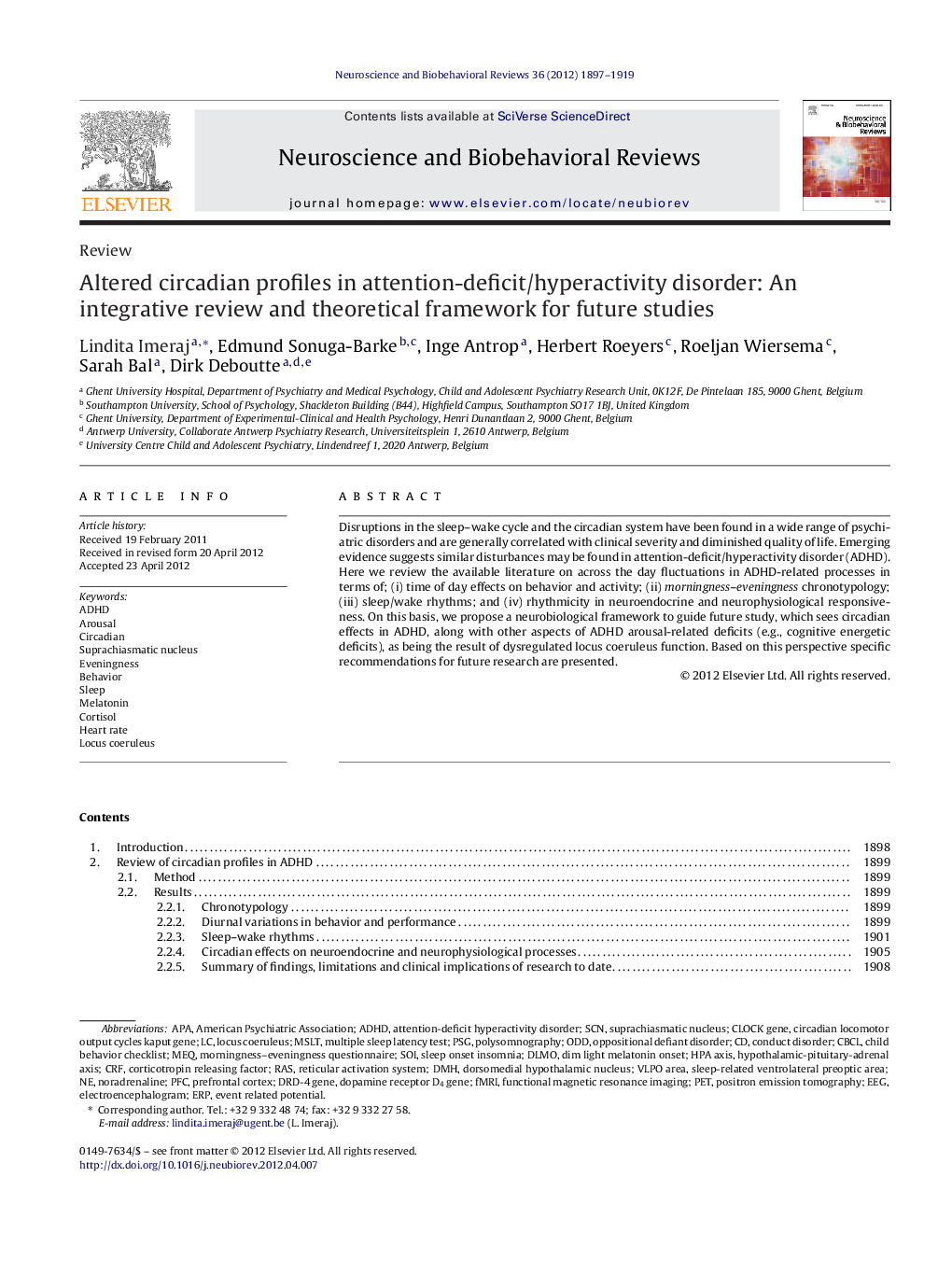| Article ID | Journal | Published Year | Pages | File Type |
|---|---|---|---|---|
| 937511 | Neuroscience & Biobehavioral Reviews | 2012 | 23 Pages |
Disruptions in the sleep–wake cycle and the circadian system have been found in a wide range of psychiatric disorders and are generally correlated with clinical severity and diminished quality of life. Emerging evidence suggests similar disturbances may be found in attention-deficit/hyperactivity disorder (ADHD). Here we review the available literature on across the day fluctuations in ADHD-related processes in terms of; (i) time of day effects on behavior and activity; (ii) morningness–eveningness chronotypology; (iii) sleep/wake rhythms; and (iv) rhythmicity in neuroendocrine and neurophysiological responsiveness. On this basis, we propose a neurobiological framework to guide future study, which sees circadian effects in ADHD, along with other aspects of ADHD arousal-related deficits (e.g., cognitive energetic deficits), as being the result of dysregulated locus coeruleus function. Based on this perspective specific recommendations for future research are presented.
► There is initial evidence for disrupted circadian effects on arousal in ADHD. ► Effects are documented by behavior, sleep–wake and neurophysiological measures. ► LC-arousal dysfunction may provide a link between ADHD and circadian effects. ► This working model serves as a framework for future research.
